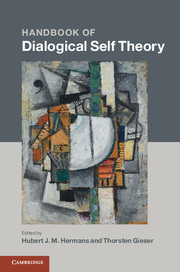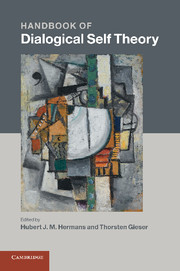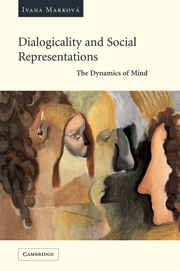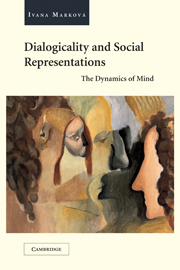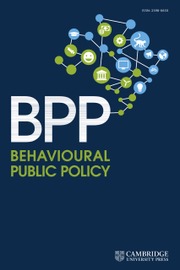Mutualities in Dialogue
Dialogue has developed from more primitive forms of communication during evolution. In Mutualities in Dialogue, "dialogue" refers to face-to-face interaction between two or more individuals using a system of signs. It asks the question "What is it that we share in the course of a dialogue?", arguing that mutualities of language, culture and some interpersonal information are prerequisite for effective communication. Even in instances of noncooperation or of asymmetrical dialogue elementary commonalities must be present.
- Psychologists, linguists, primatologists and communications scholars examine basis for effective communication in ordinary situations
- Focuses on individuals actually in dialogue, including nonverbal situations eg mother and baby
- Draws on a range of theoretical approaches to make case for role of mutualities in dialogue
Product details
January 1996Paperback
9780521499415
304 pages
228 × 152 × 17 mm
0.45kg
1 b/w illus. 12 tables
Available
Table of Contents
- 1. Commonality, mutuality, reciprocity: a conceptual introduction C. F. Graumann
- Part I. Mutualities in Preverbal and Nonverbal Communication:
- 2. Mutuality and dialogue in non-human primate communication D. W. Ploog
- 3. Origins of reciprocity and mutuality in prelinguistic parent-infant 'dialogues' M. Papousek
- 4. Congruence, contagion, and motor mimicry: mutualities in nonverbal exchange H. G. Wallbott
- Part II. Establishing and Maintinaing Mutuality:
- 5. Mutual inferencing in conversation J. J. Gumperz
- 6. Coordination of perspective in dialogue: intrapersonal and interpersonal processes R. M. Krauss. S. R. Fussell and Y. Chen
- Part III. Problems of Mutuality and Understanding:
- 7. On mutual understanding and agreement in dialogues K. Foppa
- 8. Troubles with mutualities: toward a dialogical theory of misunderstanding and miscommunication P. Linell
- Part IV. Dialogues with Speech-Impaired Partners:
- 9. Mother-child dialogues: a comparison of preschool children with and without specific language impairment H. Grimm
- 10. Complementarity in the construction of a problematic utterance in conversation S. Collins and I. Markova
- 11. The communicative act: an epilogue to mutualities in dialogue R. Farr and R. Rommetveit.


